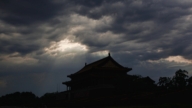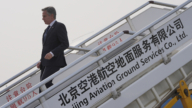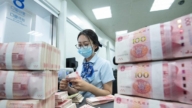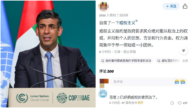【新唐人2013年04月05日讯】中国四川成都会展旅游集团董事长邓鸿,正在接受有关部门调查。传他与去年底涉贪落马的前四川省委副书记李春城关系密切。报导说,他旗下数十家经营实体牵涉的巨大利益最终流向何方,可能正是相关部门调查的重心所在。
现年50岁的邓鸿,是四川成都会展旅游集团董事长,集团旗下拥有世纪城新国际会展中心、九寨天堂国际会议渡假中心等多个项目。邓鸿曾名列2006年《福布斯》中国富豪排行榜第328位,是身价超过9亿元人民币的四川会展王兼旅游王。
3号,大陆《21世纪经济报导》说,邓鸿目前正在接受有关部门的调查。他旗下数十家经营实体牵涉的巨大利益最终流向何方,可能正是相关部门调查的重心所在。
邓鸿被指与前四川省委副书记李春城关系密切,去年底,李春城涉贪落马后,邓鸿被传曾遭有关部门约谈,但他否认被调查。
早前媒体曾经报导,李春城是前中共政法委书记周永康的人,周下台后,李春城涉及的大量贪腐事实,被中共新领导人习近平做为“反腐”典型开刀。
2月初,知情人士告诉博客“泛华网”,习近平决定提早摘除周永康这个毒瘤,而这次行动的第一功臣则是李春城,他供出了很多周永康的犯罪证据。
据了解,李春城不但涉及多起贪腐案,还涉买官卖官、以权谋私及中共高层权斗等,案子都涉及周永康。另外,周永康的儿子在石油、地产以及投资“四川信托有限公司”等的商业利益上,李春城的贡献最大。“四川信托”拥有很多国有资产,包括部分“五粮液”和“国窖”白酒的股份,他们投资2亿元,就窃取了70亿的国有资产。
去年底以来,四川已有3名富商被有关部门调查,其中包括“郎酒集团”董事长汪俊林,和持有香港身份证的“金路集团”董事长刘汉。据说,三人都与李春城关系密切,还有分析说,3人的被调查,很可能是习近平为捉拿周永康做准备。
时事评论家马杰森指出,李春城和周永康都是从四川起家,说3名富豪与他们关系密切也不是空穴来风。
时事评论家 马杰森: “中国的这个体制里头,你要真的做大,成为大富豪,你没有官方的联系是绝对不可能的,而官方也需要几个富豪,作为自己的财路的来源,所以,富豪跟当地这种官员应该是有千丝万缕关系的。”
马杰森指出,如果习近平这一代领导人,掩盖不住中共活摘人体器官的罪恶时,或许会拿周永康开刀。
杰森:“毕竟周永康做了一些极其令人发指的一种迫害人类,反人类罪,比如说,活摘法轮功学员器官等等这样的事情,他如果说,把周永康的罪状抓的足够多的话,必要的时候,也许可以让周永康给整个中共背这个黑锅。”
周永康辖下的政法委主导下的维稳体制,横跨公检法、监狱、信访,造成中国冤民遍地,申冤无门。上月初,大陆维权律师浦志强在网路上举报周永康祸国殃民,为非作歹十年,荼毒天下,他指出,中国要想从维稳的阴影下走出来,就必须清算周永康。
北京时政观察人士华颇:“因为这暗含政治追杀的涵义,因为做为这种政治追杀, 那贾庆林是不是也会跟着受威胁,罗干、曾庆红牵扯面实在太大了,习近平搞的,第一主要是政治委员这个级别,他的老虎级别是有严格限制的。”
去年王薄事发后,周永康、江泽民、曾庆红、罗干等多名中共高官活摘法轮功学员器官的事迹也在国际全面曝光,而他们已在全球30个国家,被起诉犯下“反人类罪”、“酷刑罪”及“群体灭绝罪”。
Sichuan Tycoon Probed for Involvement in Li Chuncheng Case
Deng Hong, a Sichuan tycoon, is being investigated
by the Chinese Communist Party (CCP) authorities.
Reportedly, he has close ties to Li Chuncheng,
who is Sichuang’s ex-Deputy Party chief.
Media said the official probe may aim to find
out the whereabouts of huge assets that
Deng Hong’s businesses are involved with.
50-year-old Deng Hong is president of the Exhibition &
Travel Group (ETG), in Chengdu, Sichuan Province.
ETG owns dozens of entities, including an international
convention centre, and an international holiday center.
In 2006, Deng Hong was ranked 328 in Forbes’
Billionaires List, with a wealth of over 900 million yuan.
On March 3, China’s “21st Century Business Herald”
reported that Deng Hong is under CCP investigation.
Where are ETG’s huge assets? The answer
may be what the investigation aims to find out.
Reportedly, Deng Hong has close ties to Li Chuncheng,
the former Deputy Party Chief of Sichuan.
At 2012 year-end, Li was arrested on charges of corruption.
Deng Hong was questioned by the relevant
authorities, and Deng denied involvement.
According to earlier media reports, Li Chuncheng’s
patron is Zhou Yongkang, the former security czar.
After Zhou’s tenure ended, Li Chuncheng got the
axe by Xi Jinping, as part of Xi’s anti-corruption drive.
In early February, a news report
on panchinese.blogspot.com.br quoted an inside source.
It said that Xi Jinping has decided to
purge Zhou Yongkang ahead of schedule.
Li Chuncheng was said to have contributed greatly to it,
with his confession about Zhou’s many criminal activities.
Media reported that besides his involvement
in corruption, Li Chuncheng was accused
of buying and selling official positions.
In addition, he abused power and
was involved in high-level infighting.
Zhou Yongkang was implicated in all the concerned cases.
Li Chuncheng also offered great help to Zhou Yongkang’s
son, to be able to reap huge profits from oil, real estate
and investment in Sichuan Trust Co., Ltd.
Sichuan Trust owns many state-owned assets, including
stocks in vintage liquor “Wuliangye” and “Guo Jiao”.
By investing 200 million yuan in the Sichuan Trust, they
acquired state-owned assets worth over 7 billion yuan.
Since the end of 2012, three wealthy businessmen
in Sichuan have been put under official probes.
They included Wang Junlin, president of Langjiu Group,
and Liu Han, president of Jinlu Group.
Media said these three people, and
Li Chuncheng, shared close relationships.
Analysts said that the investigation into the three men
may pave the way for Xi Jinping to catch Zhou Yongkang.
Critic Jason Ma says that Li Chuncheng and
Zhou Yongkang both got their starts in Sichuan.
It isn’t groundless about their
close links with the three tycoons.
Jason Ma: “In China, it’s impossible to become a
tycoon without having connections to the authorities.
Meanwhile, the authorities are willing to take
some wealthy men as a source of their income.
So there are complex links
between rich men and local officials.”
Jason Ma speculates that if the new CCP leadership
team fails to hide the evidence of organ harvesting,
they may take an axe to Zhou Yongkang.
Jason Ma: “Anyway, Zhou Yongkang is one of main
culprits who has committed crimes against humanity.
An example is live organ harvesting
from Falun Gong practitioners.
If the new CCP administration has obtained
sufficient proof to convict Zhou Yongkang,
they might let him carry the blame for the CCP.”
Zhou Yongkang, the former head of CCP’s Political and
Legislative Affair Committee (PLAC), had control of the
police, the procuratorate, courts, prisons, and petitions.
Zhou dominated a “stability preservation” system,
which has created numerous injustices across China.
Early in March, Pu Zhiqiang, a Beijing human rights
lawyer, denounced Zhou Yongkang on the internet.
Pu said that during his ten years of tenure,
Zhou has committed all kinds of evils in China.
According to Pu, China has to purge Zhou Yongkang
before it can really step out of the dark shadows.
Hu Po, political observer: “It implies a sort of political killing.
Will Jia Qinglin, Luo Gan, and
Zeng Qinghong be threatened next?
That will involve a wide initiative.
Xi Jinping is now targeting CCP politburo members.
These “tiger” officials, in his words, are strictly defined.”
In 2012, the crimes of Wang Lijun and Bo Xilai were exposed.
Since then, atrocities of the CCP removing organs from living
prisoners of conscience have been unveiled to the world.
These crimes have been controlled by top
level CCP officials, including Zhou Yongkang,
Jiang Zemin, Zeng Qinghong and Luo Gan.
So far, they have been sued in 30 countries, on charges
of crimes against humanity, torture and Genocide.





























